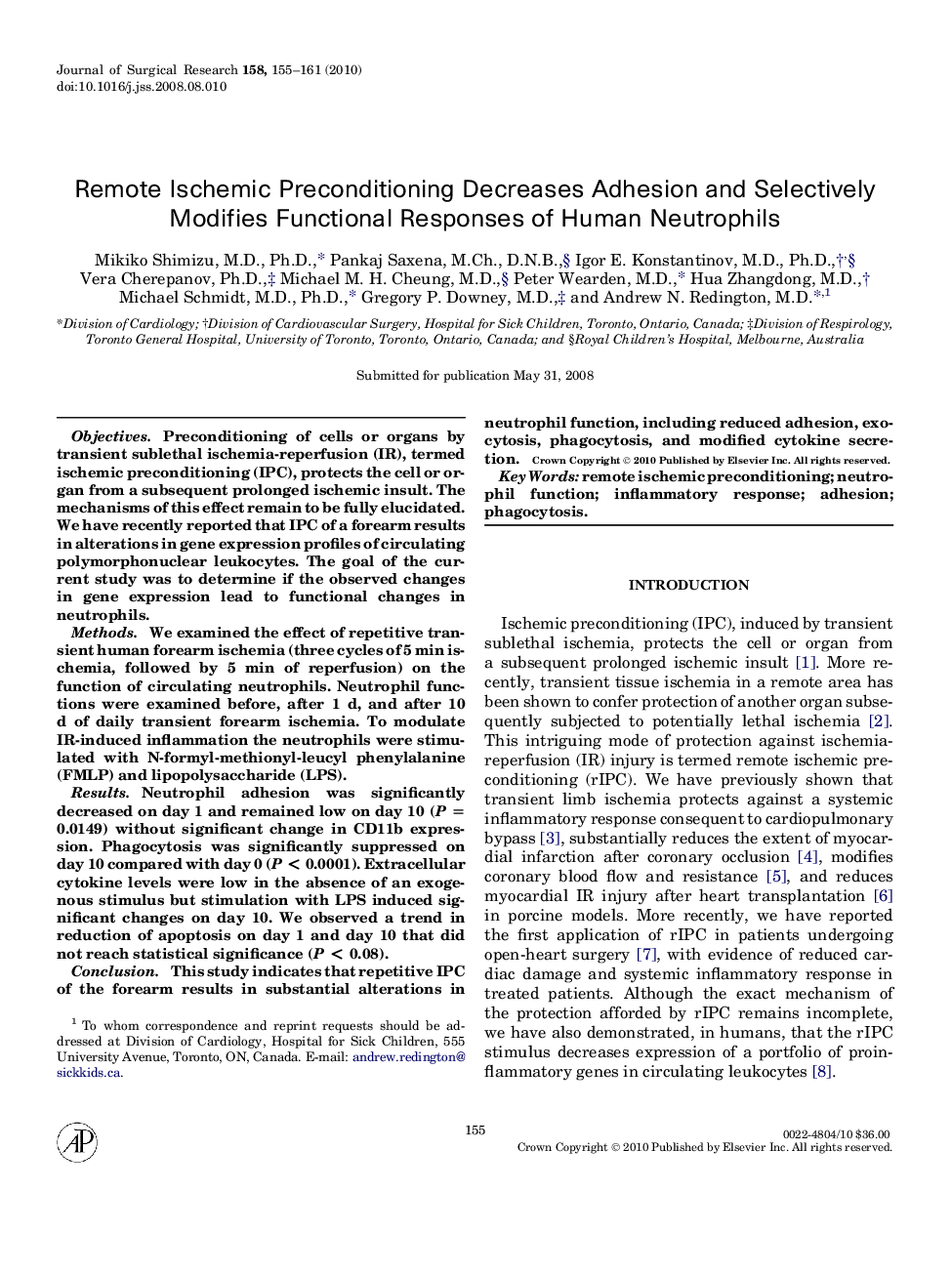| Article ID | Journal | Published Year | Pages | File Type |
|---|---|---|---|---|
| 4303340 | Journal of Surgical Research | 2010 | 7 Pages |
ObjectivesPreconditioning of cells or organs by transient sublethal ischemia-reperfusion (IR), termed ischemic preconditioning (IPC), protects the cell or organ from a subsequent prolonged ischemic insult. The mechanisms of this effect remain to be fully elucidated. We have recently reported that IPC of a forearm results in alterations in gene expression profiles of circulating polymorphonuclear leukocytes. The goal of the current study was to determine if the observed changes in gene expression lead to functional changes in neutrophils.MethodsWe examined the effect of repetitive transient human forearm ischemia (three cycles of 5 min ischemia, followed by 5 min of reperfusion) on the function of circulating neutrophils. Neutrophil functions were examined before, after 1 d, and after 10 d of daily transient forearm ischemia. To modulate IR-induced inflammation the neutrophils were stimulated with N-formyl-methionyl-leucyl phenylalanine (FMLP) and lipopolysaccharide (LPS).ResultsNeutrophil adhesion was significantly decreased on day 1 and remained low on day 10 (P = 0.0149) without significant change in CD11b expression. Phagocytosis was significantly suppressed on day 10 compared with day 0 (P < 0.0001). Extracellular cytokine levels were low in the absence of an exogenous stimulus but stimulation with LPS induced significant changes on day 10. We observed a trend in reduction of apoptosis on day 1 and day 10 that did not reach statistical significance (P < 0.08).ConclusionThis study indicates that repetitive IPC of the forearm results in substantial alterations in neutrophil function, including reduced adhesion, exocytosis, phagocytosis, and modified cytokine secretion.
